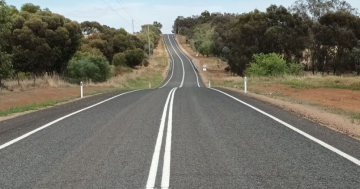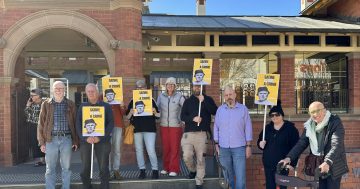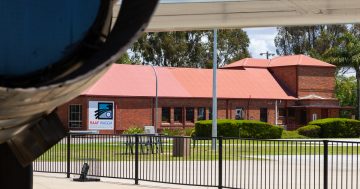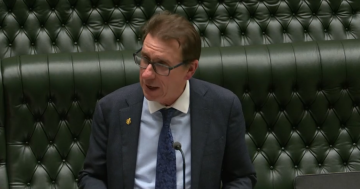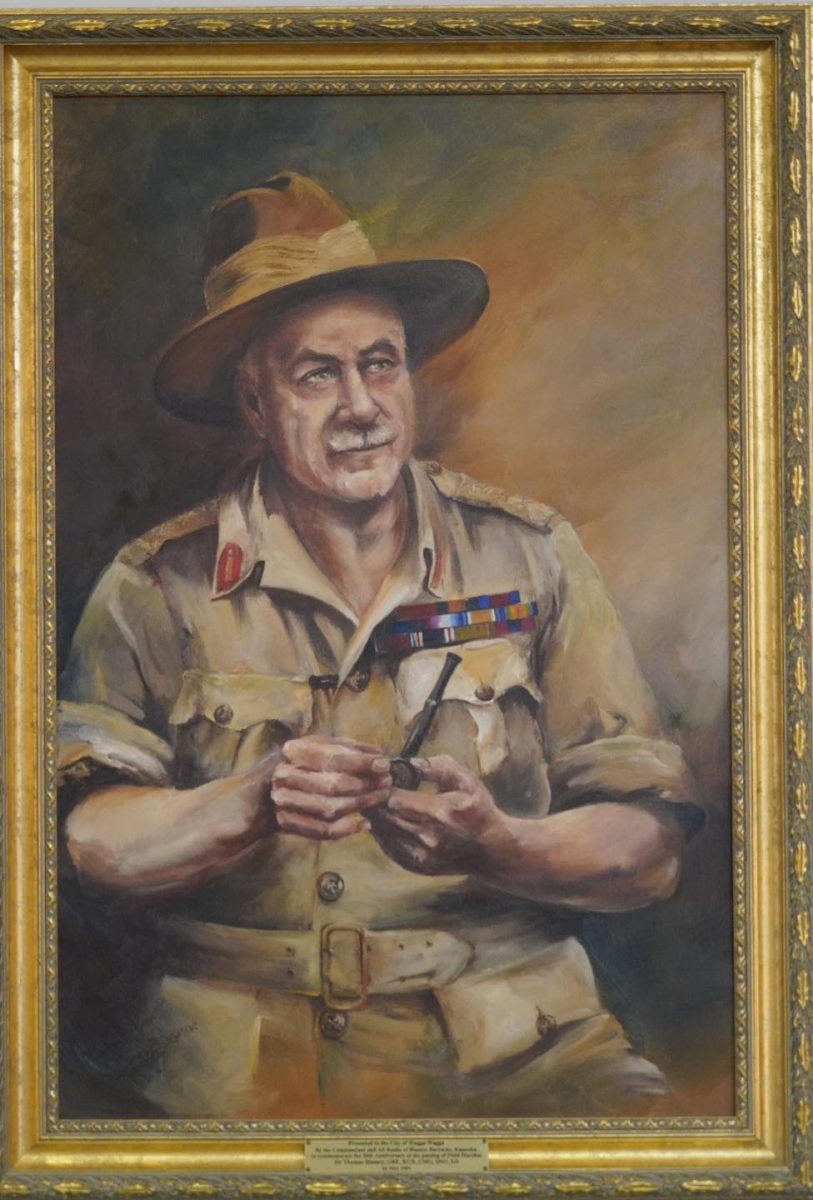
The relocation of this portrait of Sir Thomas Blamey has sparked controversy between Wagga Council and the Federal Member. Photo: Supplied.
In the wake of the recent furore over the relocation of a portrait of Wagga’s most successful Digger, Sir Thomas Blamey, we thought we’d take another look at the late field marshal’s legacy and why anyone would want to “cancel” him.
The war of words began when the Federal Member for Riverina (and noted military history enthusiast), Michael McCormack, made allegations of “woke” madness in Wagga City Council’s approach to art management.
Blamey’s portrait no longer hung in the council chambers and there was the suggestion that it had been relegated to storage after someone had complained.
Mr McCormack gave the council both barrels via an opinion piece in The Daily Advertiser.
“He has now become the latest to fall victim to the wokeness permeating society,” he said after listing the field marshal’s impressive credentials.
“Cancel culture has caught up with this hero, this true khaki icon.
“Why?
“What possible reason could there be to have Blamey’s portrait removed and placed in a broom closet?”
Why indeed?
The fact that Mr McCormack has invoked the culture war slur “woke” and shrugged off critique with a brusque “Was he perfect? No. But who is?” is an acknowledgment that Blamey’s legacy has always been a little murky.
As Mr McCormack points out, Blamey’s career began as an enlisted soldier in 1906. He landed on the beach at Gallipoli on 25 April, 1915, served as a staff officer and rose to the rank of brigadier general with distinction.
He was involved in reshaping the army after the war, served as chief commissioner of the Victoria Police during the Depression and was commander-in-chief of the Australian Army throughout World War II.
But he was also a famously controversial figure and disparaging stories were often told of “that bastard Blamey”.
There was that time as police commissioner when his badge was found in the possession of a man in a brothel, later prompting soldiers in New Guinea to call: “Get back to your brothels, Blamey!”
He was notoriously sacked for lying to a royal commission.
Wasn’t he the one who accused the ragged heroes of Kokoda of “running like rabbits”, despite never having commanded troops in battle?
Wasn’t he hated by his generals and famous for sacking those who got in his way?
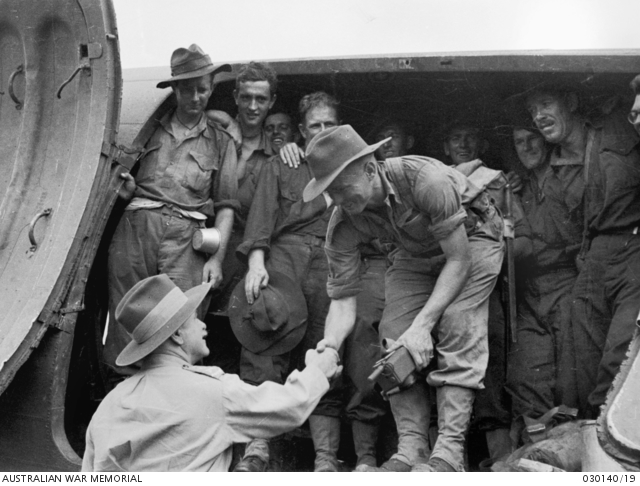
General Sir Thomas Blamey shakes hands with Diggers in September 1943. Photo: AWM.
Like everything, there are two sides to every tale, and many of these anecdotes have grown in the telling from a grain of truth.
After decades of research, Blamey’s biographer Professor David Horner has explored his many controversies and failings alongside his extraordinary success and describes him as “our greatest soldier”.
He notes that Blamey’s sordid reputation prompted then prime minister John Curtain to famously defend his appointment by declaring that “the Government was seeking a military leader not a Sunday School superintendent”.
Weighing the good against the bad, Professor Horner concluded that “the achievements far outweigh any alleged shortcomings”.
“Blamey’s critics have assigned personal motives to his actions. To them, he was a self-seeking, devious manipulator who struggled ruthlessly to retain his powerful position and to bolster his ego,” Professor Horner wrote.
“In contrast, his supporters have called him Australia’s greatest general. To them, he was a wise and forceful administrator who fought relentlessly to maintain Australian independence in military matters and who had a genuine concern for the welfare of his troops.
“A credible evaluation of Blamey’s character lies somewhere between these two views, probably closer to the second.
“In retrospect, it is hard to think of another Australian general with the prestige, force of personality and understanding of politics who could have filled his role.”
Blamey was loved by few, but was arguably the right man for the job, navigating a genuine threat of invasion along with the political machinations of the home front and the bombastic American General Douglas MacArthur.
By overlooking Blamey’s flaws, we do a disservice to the nuance of history and the right of every Australian to re-examine and challenge aspects of our past. However, we should also be careful not to “throw the baby out with the bathwater” and always examine historical figures and their actions within the context of their time and society.
As ever, history is an ongoing dialogue between the past and the present.
Blamey and his achievements are rightly remembered in the naming of the iconic barracks at Kapooka.
The portrait in question, rather than being “shamefully” hidden away, remains on display in the Museum of the Riverina’s Historic Council Chambers where it can be enjoyed six days a week by anyone wishing to pay homage.
Mr McCormack called for Thomas Blamey’s portrait to be returned to its “rightful place in the chambers forthwith”.
But what claim does the venerable field marshal have over our local government? Must he watch over council proceedings indefinitely?
Currently, in its place in the council chambers is an Illuminated Address commemorating Wagga City Council granting Freedom of the City to the Kapooka Army Band.
I’m sure we can all agree that this is an equally worthy piece of Wagga’s story that continues to recognise and celebrate the city’s long and proud association with our military.







